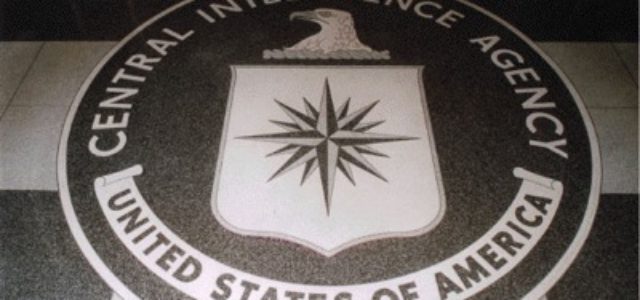Greg Hollin
It always struck me, and I know many others, that one of the most striking aspects of Bruno Latour’s famous article, ‘Why has critique run out of stream’ (2004) was a peculiar sort of self-aggrandizement. It is not entirely clear to my mind whether Latour thought that Science and Technology Studies (STS) caused inaction over global warming or 9/11 conspiracy theories, but the use of phrases like ‘our weapons’ (p.230) and ‘our critical arsenal’ (p.230) certainly seem to permit such a reading. If this was Latour’s argument, then I am not convinced it is a good one. Not only have the phenomena of which Latour speaks always existed, but there is little evidence that powerful actors have been utilizing STS. Sergio Sismondo, editor of Social Studies of Science, made precisely this point in relation to post-truth politics in a recent editorial.
It is interesting to note that Harry Collins and colleagues (2017) provide a rebuttal to Sismondo’s argument by suggesting that causal impact is essentially irrelevant to the question at hand; what matters is logical consistency and the fact that STS ‘invites’ a post-truth politics by opening up a particular ‘cognitive terrain’. I tend to side with those who see a false-equivalence here. STS has long been accused of having bad intentions and it seems only right to assert that: (a) STS scholars do not systematically have bad intentions, at least in my experience; and (b) this is important because substantively different analytic conclusions are reached precisely because STS scholars do not have bad intentions.
This is one of the points made by Mike Lynch in his article of 1998 which considers the ‘discursive production of uncertainty’ during the OJ Simpson murder trial. Lynch shows numerous parallels between STS and the ‘post truth’ antics of Simpson’s defence team – for example, demonstrating the contingencies inherent in DNA testing – but Lynch is nonetheless confident in asserting a decisive difference precisely because STS does not, as a rule, engage in a one-sided search for error. In my opinion, nuanced and politically important work on uncertainty produced by social scientists demonstrates precisely this point.
Still, the fact that neither Sean Spicer nor any of the subsequent Trump spokespeople are reading Social Studies of Science does not mean that political figures never pay attention to research of the sort that STS scholars engage in. In fact, a fascinating research paper from the Central Intelligence Agency has recently been released which pays just such attention. Written in 1985 and entitled France: Defection of the Leftist Intellectuals, the report – which features a picture of Michel Foucault at the start of chapter 1 – notes a shift from Marxist intellectuals at the political fore to a ’loud silence’ of the ‘new philosophers’ of the post-1968 era. The anonymous author notes, rather astutely, that: “Although both structuralism and Annales methodology have fallen on hard times (critics accuse them of being too difficult for the uninitiated to follow) we believe their critical demolition of Marxist influence in the social sciences is likely to endure as a profound contribution to modern scholarship in France and elsewhere in Western Europe.”
Despite this, the author suggests that post ’68 philosophies have ‘little to offer in the way of a new program’, that students in France will drift towards the liberalist policies of the United States, and that this is all in the interest of powerful American actors.
I don’t want to offer any particularly profound thoughts on the CIA’s report and, of course, STS is in many, many ways quite different to French social theory. Nonetheless, several things do seem evident and applicable to the contemporary moment. First, while there is little evidence of authorities using STS (and despite Collins and his colleagues’ assertion, this is surely important), there does seem here to be some evidence that at least some important figures are aware of and monitoring academic currents. Second, the report evinces a belief that while academic activity can influence the terms of political debate, there is an ‘atmosphere’ (to use the CIA’s term) which prevents any serious attempt at change. This seems like a point worthy of thought: is STS implicated in a general sense in as much as it is borne of, and possibly contributes to, a general atmosphere within which it is hard to make radical political intervention?
Discussing the CIA’s report in the Los Angeles Review of Books, Gabriel Rockhill argues that the ‘CIA’s reading of French theory should give us pause, then, to reconsider the radical chic veneer that has accompanied much of its Anglophone reception.’ It seems equally worth giving a moment of time to consider whether STS should pause likewise, not in order to consider if we are the cause of the problem, but rather, at the very least, to see what it would mean to be a part of the solution.
Further Reading:
Central Intelligence Agency, 1985. Defection Of the Leftist Intellectuals
Collins, H., Evans, R. & Weinel, M., 2017. STS as science or politics? Social Studies of Science, p.30631271771013. Available at: http://journals.sagepub.com/doi/10.1177/0306312717710131.
Lynch, M. 1998. The Discursive Production of Uncertainty. The OJ Simpson ‘Dream Team’ and the Sociology of Knowledge Machine. Social Studies of Science, 28(5-6), pp.829-868.
Sismondo, S., 2017. Post-truth? Social Studies of Science, 47(1), pp.3–6. Available at: http://journals.sagepub.com/doi/10.1177/0306312717692076.
Greg Hollin is lecturer in social theory in the Department of Sociology and Social Policy at the University of Leeds.
